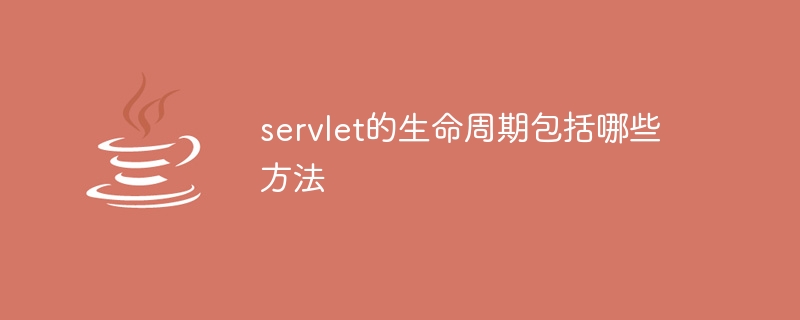
Servlet life cycle methods: 1. init(); 2. contextInit(); 3. service(); 4. doGet(); 5. doPost(); 6. doPut(); 7. doDelete(); 8. doOptions(); 9. doHead(); 10. destroy(); 11. contextDestroyed(). Detailed introduction: 1. init(), this method is loaded when the Servlet is first loaded, etc.

The operating system for this tutorial: Windows 10 system, DELL G3 computer.
The life cycle of Servlet includes three phases: initialization phase, service phase and destruction phase. The following are the detailed methods of each stage:
1. Initialization stage:
init(): This method Called when the Servlet is first loaded into memory. Usually, some data is initialized, member variables are set, etc. in this method.
contextInit(): This method is called when the context of the web application is initialized. It allows the Servlet to access the initialization parameters of the web application, as well as the initialization of other resources used in the Servlet.
2. Service phase:
##service(): This method is for Servlet core. When the client sends a request, the service() method is called. Depending on the type of request (GET, POST, etc.), the service() method will call the corresponding method (such as doGet() or doPost()).
doGet(): This method handles HTTP GET requests.
doPost(): This method handles HTTP POST requests.
doPut(): This method handles HTTP PUT requests.
doDelete(): This method handles HTTP DELETE requests.
doOptions(): This method handles HTTP OPTIONS requests.
doHead(): This method handles HTTP HEAD requests.
3. Destruction phase:
This method is used by the Servlet Called before removing from memory. Typically, resources are released, database connections are closed, etc. in this method.
This method is called when the context of the web application is destroyed. It allows the Servlet to perform any necessary cleanup operations, such as closing threads or releasing resources.
The above is the detailed content of What methods does the servlet life cycle include?. For more information, please follow other related articles on the PHP Chinese website!




